
November 1st was Karnataka Rajyotsava, our State’s birthday. It was on this day in 1956 that all Kannada-speaking provinces were brought together and named Mysore or Mysore State under the States Reorganisation Act. Then on November 1, 1973, it was renamed as Karnataka.
Every year to mark this day, our leaders after hoisting the yellow-red Karnataka flag, speak of promoting Kannada. Then the pro-Kannada activists say, “Outsiders must learn Kannada.” Yet in Bengaluru 68% of its 1.2 crore population speak languages other than Kannada.
So, the question is why is Kannada losing out in Karnataka? North Indians in Chennai speak Tamil but in Karnataka they don’t speak Kannada after living in the State for years. Why? Are Kannadigas too accommodative? Should Kannadigas insist on speaking Kannada thereby forcing the new migrants to learn the language like how Tamils have done? Or, should Kannadigas first speak Kannada themselves before asking others to do so? Because most Kannadigas speak their own dialects rather than Kannada.
For example, all Muslims in Karnataka speak Urdu unlike in Tamil Nadu or Kerala where everyone speaks the State language. In Kodagu district, people speak the local dialect called ‘Kodava thakk’. In Mangaluru district, they speak Tulu and Konkani. In North Karnataka, they speak a mix of Kannada, Telugu and Marathi.
Even our leaders who speak about “protecting” Kannada abandon Kannada and break into broken English the moment a national TV channel thrusts a microphone before them. Why can’t they reply in Kannada, the language they are most articulate in like politicians from other States?
Also many of our leaders and activists tend to be hypocrites, in the sense that while asking the poor to choose Kannada medium schools they send their own children to English medium schools. And who says that one cannot be proficient in Kannada while studying in English? Fanatic Kannada propagators must realise English is the language that has made us employable and competitive in the global market. It is the global business language, according to “Harvard Business Review” Report.
A 2014 Report from the Centre for Research and Debates in Development Policy states that men in India who spoke fluent English earned 34 percent higher wages. That is why our former Chief Minister H.D. Kumaraswamy announced the introduction of English as a medium of instruction in 1,000 Government Schools in 2018.
His decision had led to a huge backlash and his partner in the Government Siddharamaiah too joined in and said, “The primacy of Kannada in Karnataka is non-negotiable. Kannada is everything in Karnataka. I won’t allow English Medium Primary Schools run by the Government. I will speak to the Chief Minister.” If he was so passionate about Kannada why did his children study in English Medium Schools?
Guess that is why Kumaraswamy’s brother and then PWD Minister Revanna reminded everyone saying, “The same people who send their children and grandchildren to English Medium Schools oppose it when the Government introduces English as a medium for the benefit of poor and village children.”
Now, according to data collated by Department of Public Instruction and published in ‘The Hindu’ in September 2019, as many as 26,443 students have been admitted to English-medium sections, as opposed to 12,034 to Kannada-medium in same schools.
The report says many Government School heads have attributed the poor student strength in Kannada-medium to the opening of English-medium sections. Owing to pressure from parents and members of the School Development and Monitoring Committee (SDMC), some school managements have opened more than one English-medium section! So Kumaraswamy was right, the poor know that English is a language that could fulfil their aspirations in a global economy.
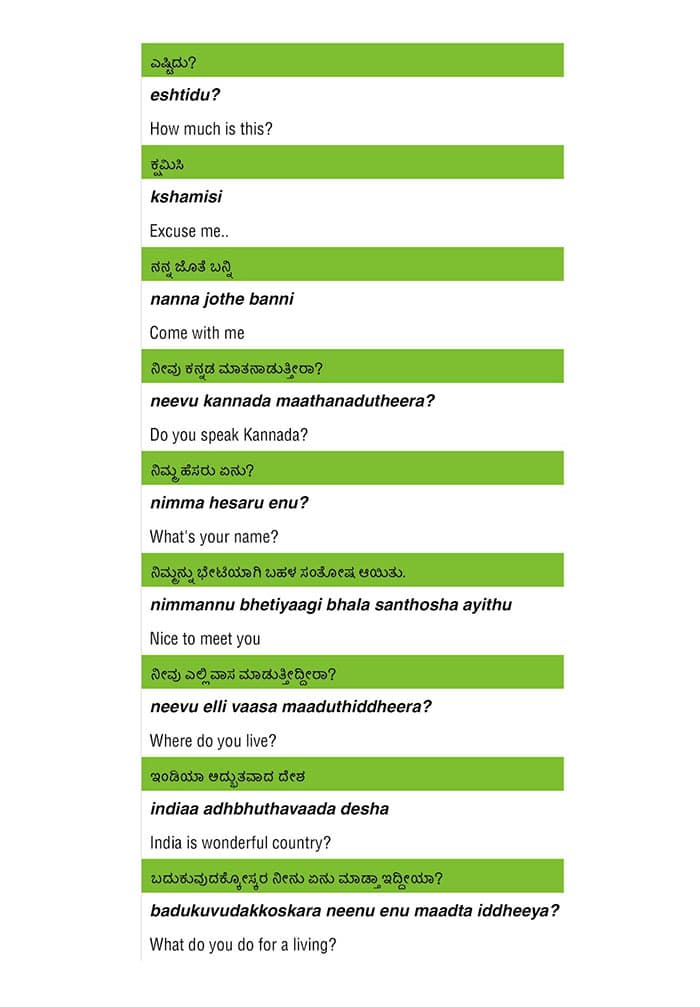
But while it is a great asset to know English, it is important to know your regional language too from a sociological point of view. And if you want to make people speak Kannada, especially outsiders, then we need to make its learning accessible.
May be pro-Kannada organisations, instead of simply ordering that “outsiders must learn Kannada” should ask the Government to set up inexpensive spoken Kannada classes in all Universities. After all, spoken Kannada is more useful than written Kannada.
Here, young IT entrepreneurs have done more for Kannada than by various Kannada organisations and the Government. These entrepreneurs have launched Kannada learning apps and websites like ‘Kannada Baruthe’, ‘Learn Kannada Quickly’, ‘Day2Day Kannada’ and ‘KannadaGottilla.com.’
Even the Central Institute of Indian Languages (CIIL) based in Mysuru offers an online Kannada course for Rs. 500. Unfortunately one has to go through “script lessons” before getting spoken Kannada lessons.
In the end, the onus is also on the outsiders to learn the local language. Non-Kannada speakers, looking to settle down in Karnataka, will make life easy for themselves if they learn Kannada as they can effectively communicate with the Police, local Government or even in shops. Also knowledge of the local language will help one integrate into the community, else they will always be “outsiders.”
More importantly, local language has an unmatched emotional and communicative value. That is why Nelson Mandela said, “If you talk to a man in a language he understands, it goes to his head. But if you talk to him in his language, it goes to his heart.”
e-mail: [email protected]



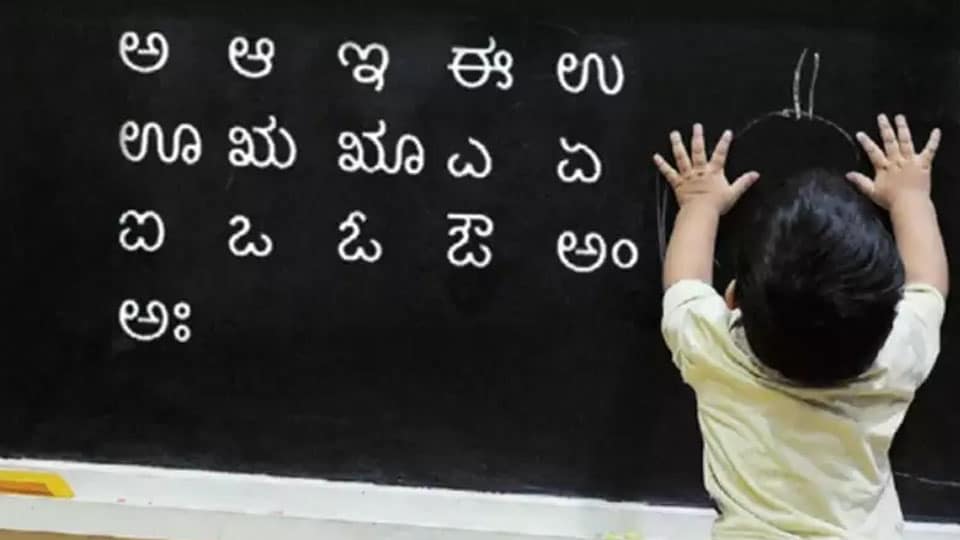
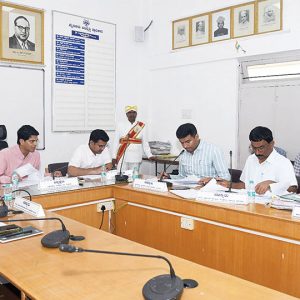
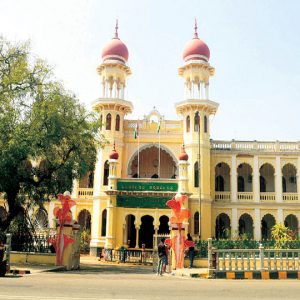
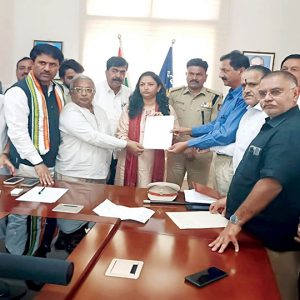
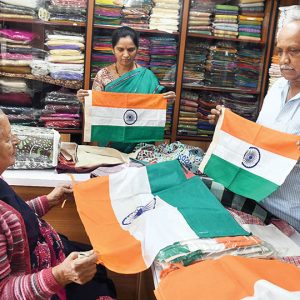
Thanks for those useful websites and apps on spoken Kannada. I had subscribed to the CIIL course and learnt to read and write Kannada, but promptly forgot everything in 6 months since I was not able to practise spoken Kannada. You have highlighted the difficulties that “outsiders” (though I have my family roots in the state, I had spent all my childhood, youth and working life outside the state) have in learning the language, especially those like me who have no natural flair for languages or who are naturally introverted and do not speak much to strangers! More should be done to make the language accessible and learnable by those who want to learn it. This will do more for Kannada than all the goondaism and political upmanship that goes on its name. Any further suggestions on such online or other courses in spoken Kannada will be welcome.
Instead of shouting at non kannadigas to learn Kannada, go to Tamil Nadu and do a detailed study on why it works there. Implement the same here. It should have been done long time ago…
Go to any of the shopping malls in Bangalore and try speaking Kannada with the sales person, they will reply in English as they are instructed to speak in English. Kannadigas are too passive and their motto is “Adjust maadi”
@Govinda Pai. The best way to learn a language to speak is to talk to your friends in that language only. It will be difficult to start with, but given the effort, you will learn to speak that language in weeks. You have the basics of the language, even if you have forgotten it. The above approach will help to learn quickly.
Before Andhra Pradesh was created, the then Madras ( Chennai now) was dominated by Andhras, particularly Reddys. That made native Tamilians to become more fanatics of their langauge. Besides, Tamil as a language is not derived from Sanskrit, which Kannada for example is, and Tamilians struggle to learn the language, and this added to their fanaticism means they are poor in learning other languages. Tamilians fanaticism of their language does not attract friends who speak other languages. Look at how they created problems in other states like Maharashtra,and countries like Singapore.
The Royal Mysore, under Wadiyars like Krishnaraja Wadiyar invited citizens of other states who can contribute to the then Mysore state. Bengaluru particularly befitted by this. With the establishment of many state-owned industries like the ITI, BEL, HMT etc.. in Bengaluru, and the consequent influx of engineers and technicians from other statesin India , meant that learning of Kannada became a low priority as these were central government employees and these industries were established by the central government.
To be fair to these people who were better skilled than Kannadigas. The blame should be placed squarely on the then Mysuru government and leaders like Kengal,Nijalingappa etc.. who were interesd in their narrow politics and not giving opportunities for Kannadigas to learn skills that these industries required. I, as a Kannadiga was working in one the above industries, and we were struggling to recruit Kannadigas with the required skills.The corrupt Mysuru government then simply did not spend money to improve Kannadigas skills. Even those with skills, were shall we say:”easy-going”,which did not help.
Those literary figures like Kuvempu who were on a preaching mode to learn Kannada in 1950s, were guilty of doing the opposite for their children, who happily had English education, which allowed them to go abroad ,settle and marry,bringing their wives, who spoke only English!
Now, it is too late with Bengaluru becoming international tech city. Hence, the predominance of English.
Finally,what is the version of spoken Kannada that is desirable? Old Mysuru version,spoken in Mysuru and Bengaluru, or the Kannada spoken by those who are in the states of Uttara Karantaka?
@Strangeworld. Thank you. Good advice as usual. Yes, I am determined and will persevere this time!